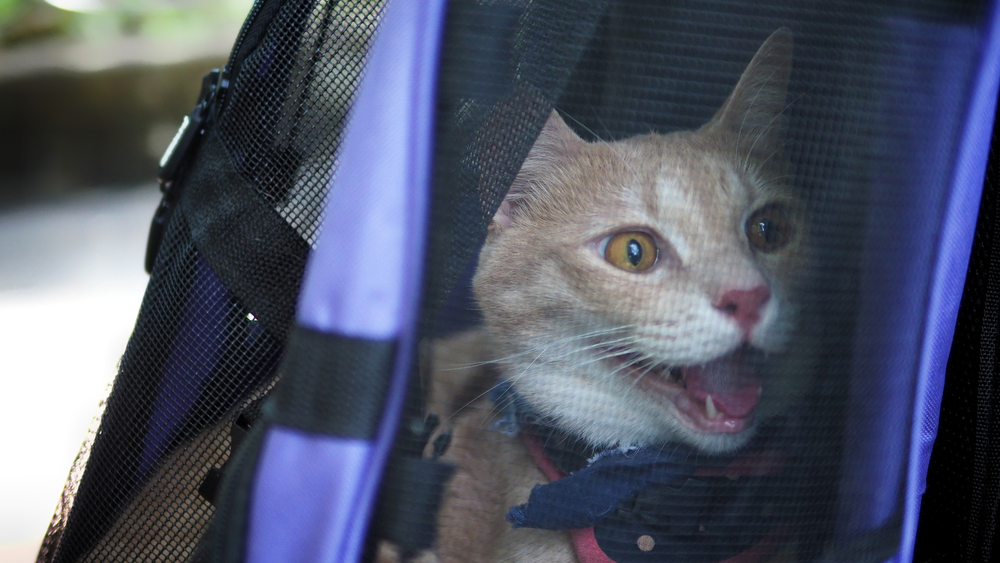As temperatures soar this summer, pet owners must remain vigilant about protecting their furry pals from heat-related dangers. To help you safely navigate the hottest months, the Southern Kern Veterinary Clinic team compiled a list of pet owners’ frequently asked questions and our detailed answers about pet heat safety.
Question: Why is heat safety important for pets?
Answer: Pets are less efficient at cooling themselves than humans, which leaves them vulnerable to deadly heatstroke and other heat-related injuries. Although some overheated pets will self-regulate and seek out cool areas, many push themselves too hard in the name of fun or want to lie in the sun a little too much. Pet owners are responsible for ensuring pets stay safe in all temperatures.
Q: What are heatstroke signs in pets?
A: Heatstroke signs include excessive panting, lethargy, weakness, drooling, vomiting, diarrhea, incoordination, rapid or irregular heart rate, red gums, or collapse. Heatstroke is often deadly, but immediate veterinary attention can increase an affected pet’s survival chances.
Q: How can I prevent heatstroke in my pet?
A: Monitoring your pet while outdoors and understanding their limits can help you prevent heatstroke. Additionally, consider the following essential tips:
- Provide fresh water and shade
- Keep your pet indoors during peak heat hours
- Allow active pets to acclimate to the heat slowly
- Use cooling vests or mats
- Take frequent exercise breaks
Q: Is leaving my pet in the car for a few minutes safe?
A: Leaving a pet in a parked car, even when temperatures feel relatively mild, can be life-threatening, because the car can reach a high inside temperature in only minutes. Parking in the shade or leaving the windows cracked open makes no difference. If you can’t take your pet with you wherever you’re going, leave them at home.
Q: What should I do if my pet shows heatstroke signs?
A: Quick action is crucial to helping your pet survive a heatstroke event. If your pet is exposed to heat and you see possible heatstroke signs, take these steps:
- Move your pet to a cool, preferably air-conditioned, area.
- Pour cool water over your pet and place them near a fan or air vent.
- Contact our veterinary team or the nearest emergency veterinary clinic for further instructions.
Q: Are some breeds more susceptible to heat-related illnesses than others?
A: Brachycephalic breeds have short noses and altered airways that prevent them from cooling down efficiently while panting. Bulldogs and pugs are more likely to suffer from heatstroke than Chihuahuas or beagles. Senior pets, puppies, kittens, overweight pets, and pets with chronic diseases are also more sensitive to extreme weather.
Q: Can pets get sunburned?
A: Pets with thin fur and exposed skin can suffer from sunburn, similar to humans. You can protect vulnerable skin by applying a pet-safe sunscreen—always avoid using human products, which may contain harmful chemicals. Don’t allow pets to sunbathe for prolonged periods.
Q: What are some safe summer pet activities?
A: You can help your pet beat the heat. Consider these activities:
- Swimming — If your pet enjoys water, swimming can provide respite from heat and burn off excess energy. Always supervise pets in the water.
- Early morning or late evening walks — Walk your pet or play outdoors during cooler times of day.
- Indoor play or training — Interactive games, training sessions, puzzle toys, or long-lasting chews give pets something to do indoors.
Q: What are some other heat-related dangers for my pet?

A: Heatstroke is the most severe heat-related illness in pets—milder versions include dehydration, heat cramps, and heat stress—and you must be familiar with early heatstroke warning signs to avoid these conditions. Additionally, pets can suffer from paw pad or skin burns from contacting hot surfaces, so walk on grass when possible.
Heat safety is critical for your pet’s well-being during the dog days of summer. Understanding heat dangers, taking preventive measures, and knowing what to do in an emergency can ensure your pet stays healthy and comfortable all summer. Contact the Southern Kern Veterinary Clinic team to learn more about heat-related illnesses or to schedule a comprehensive wellness exam.

